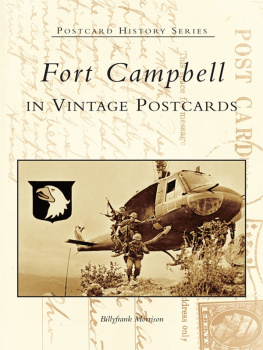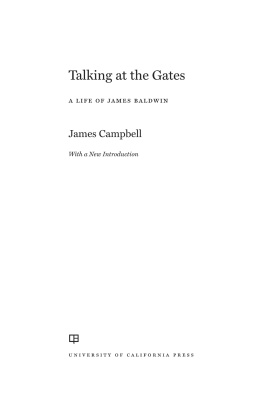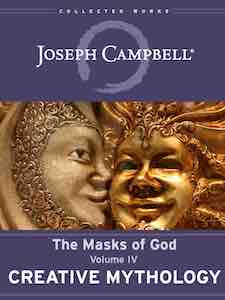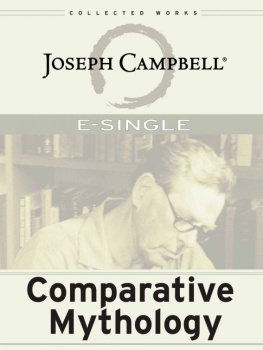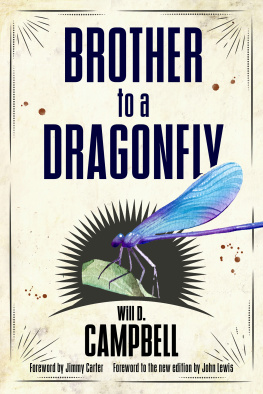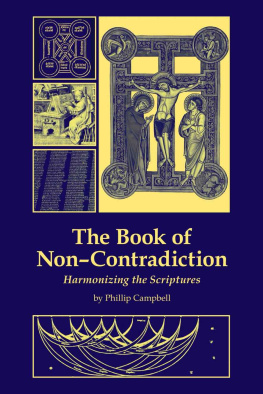www.upress.state.ms.us
The University Press of Mississippi is a member of
the Association of American University Presses.
Copyright 2018 by University Press of Mississippi
All rights reserved
Manufactured in the United States of America
First printing 2018
Library of Congress Cataloging-in-Publication Data
Names: Campbell, Will D., interviewee. | Royals, Tom, 1938 editor.
Title: Conversations with Will D. Campbell / edited by Tom Royals.
Description: Jackson : University Press of Mississippi, [2018] | Series: Literary conversations series | Includes bibliographical references and index. |
Identifiers: LCCN 2017054848 (print) | LCCN 2018000310 (ebook) | ISBN 9781496814968 (epub single) | ISBN 9781496814975 (epub institutional) | ISBN 9781496814982 (pdf single) | ISBN 9781496814999 (pdf institutional) | ISBN 9781496814951 (hardcover : alk. paper) | ISBN 9781496818140 (pbk. : alk. paper)
Subjects: LCSH: Campbell, Will D.Interviews. | BaptistsSouthern StatesClergyInterviews. | Authors, American20th centuryInterviews.
Classification: LCC PS3553.A488 (ebook) | LCC PS3553.A488 Z46 2018 (print) | DDC 813/.54 [B] dc23
LC record available at https://lccn.loc.gov/2017054848
British Library Cataloging-in-Publication Data available
Books by Will Campbell
Autobiography
Brother to a Dragonfly. Seabury Press, 1977. Republished, New York: Bloomsbury Press, 2000.
Crashing the Idols: The Vocation of Will D. Campbell. Eugene, OR: Wipf and Stock Publishers, 2010.
Forty Acres and a Goat. Perennial Library, 1986. Republished, Oxford, MS: Jefferson Press, 2002.
Fiction
Cecelias Sin. Macon, GA: Mercer University Press, 1983.
The Convention: A Parable. Atlanta, GA: Peachtree Publishers, 1988.
The Glad River. New York: Holt, Rinehart and Winston, 1982.
Juvenile Fiction
Bluebirds Always Come on Sunday. Franklin, TN: Providence House Publishing, 1997.
Chester and Chun Ling. Nashville, TN: Adington Press, 1989.
The Pear Tree That Bloomed in the Fall. Franklin, TN: Providence House Publishing, 1996.
Shugah and Doops. Franklin, TN: Providence House Publishing, 1997.
Nonfiction
And Also with You: Duncan Gray and the American Dilemma. Franklin, TN: Providence House Publishing, 1997.
And the Criminals with Him: Essays in Honor of Will D. Campbell and All the Reconciled. Ed. with Richard C. Goode. Eugene, OR: Wipf and Stock Publishers, 2012.
Covenant: Faces, Voices, Places. Atlanta, GA: Peachtree Publishers, 1989.
God on Earth: The Lords Prayer for Our Time. New York: Crossroads Publishing, 1984.
Providence. Atlanta, GA: Longstreet Press, 1992. Reprint 2002.
Race and the Renewal of the Church. Philadelphia: Westminster Press, 1962.
Robert G. Clarks Journey to the House. Jackson: University Press of Mississippi, 2003.
Soul among Lions: Musings of a Bootleg Preacher. Louisville, KY: Westminster John Knox Press, 1999.
The Stem of Jesse: The Costs of Community at a 1960s Southern School. Macon, GA: Mercer University Press, 1995. Reprint 2002.
Up to Our Steeples in Politics. New York: Paulist Press, 1970. Republished, Eugene: Wipf and Stock Publishers, 2005.
Writings on Reconciliation and Resistance. Eugene, OR: Wipf and Stock Publishers, 2010.
And the Criminals with Him Lk 23:33; A First-Person Book about Prisons. New York: Paulist Press, 1973.
Introduction
This book explores the life and works of the late Will Davis Campbell, a Baptist minister recognized for his work in the civil rights movement in America in the 1950s and 60s. Will was born to a Mississippi, subsistence-farming family in 1924 and became an ordained minister when he was barely seventeen years of age. A skilled and courageous writer and preacher, he published numerous books and participated as a peacemaker in most of the civil rights confrontations in the South. Throughout his career, Campbell drew attention for criticizing the institutional churches and supporting womens rights, gay rights, school desegregation, and Vietnam protesters. Conservatives accused him of beings too liberal because of his views on integration, and liberals found fault with him because he believed segregationists were equal in the eyes of God.
After Campbell graduated from East Fork High School in Amite County, Mississippi, the East Fork Baptist Church ordained him. He then studied the ministry at Louisiana College for two years before joining the US Army and serving three years in Southeast Asia as a hospital technician. Upon his discharge Sergeant Campbell married Brenda Fisher until death did them part. While in the military, Will read Howard Fasts novel Freedom Road. That book described the mistreatment of poor black and white people during Reconstruction. Will saw his family reflected in the characters of the novel. That experience changed him greatly. He vowed to dedicate his life and ministry to preaching reconciliation and grace. If people accepted reconciliation, grace, and the teachings of Jesus, they would be kinder to each other, he hoped.
Upon graduation from Wake Forest College with a degree in English literature, he studied at Tulane for one year. In 1952 Will graduated from Yale University with a BA in ministerial studies. After preaching at a small church for two years, he departed from pulpits and steeples (institutional churches) for good. He then served as religious director at University of Mississippi from 1954 to 1956 when he resigned because of threats and pressure from the chancellor about his views regarding integration. The National Council of Churches (NCC) in New York hired him as a race relations consultant in the southern United States. He got to know and worked with Rev. Martin Luther King, John Lewis, and Andrew Young. He tried to work with the Klan as well in an effort to prevent violence.
Once a young man came into Wills office and demanded, Just who the hell are you to march with Reverend King and at the same time meet with the Klan? Will frequently employed humor to deal with people. Well, he drawled, I am not at the top of any whos who list at this time. However, like most of us, I do have a name. Would that help? The young man answered that his name was Kris Kristofferson and that he was going to become a major songwriter. Will, like most everybody in Nashville, played the guitar and wrote a song or two. He told Kris that he was also going to be a great songwriter. The two visited over time and eventually became longtime friends. Campbell and Kristofferson each believed he had important messages to deliver through his works. The fact that much of what each one said went unheeded never caused Campbell to stop preaching and teaching just as Kristofferson never thought of giving up songwriting and singing.


